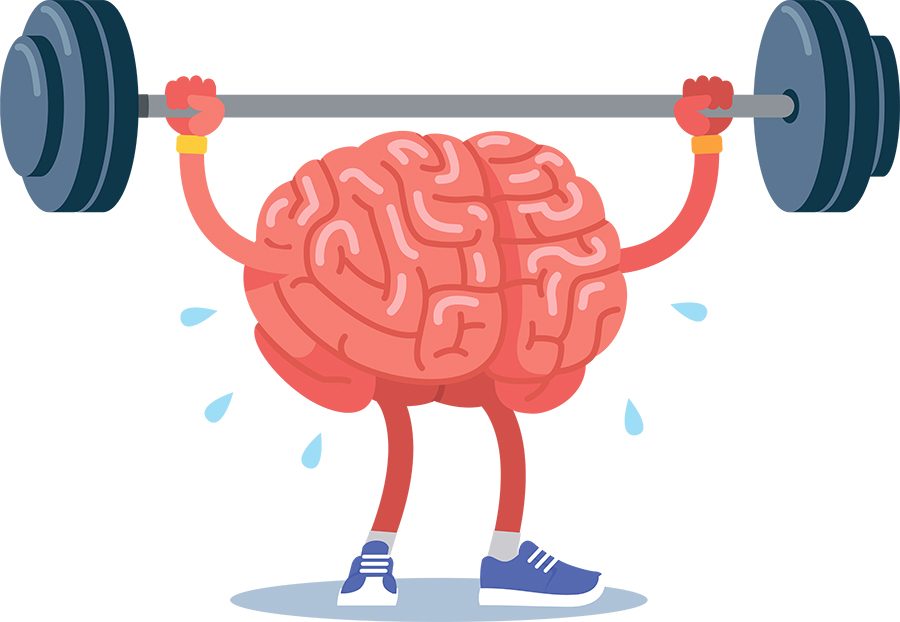10 Exercise Benefits for Brain Health:
Exercise Benefits for Brain Health: Though its advantages go well beyond the body, physical activity has long been recognized for its ability to strengthen the heart, increase physical endurance, and boost strength. Additionally, it is essential for memory and other cognitive processes as well as brain health. Regular physical activity can significantly improve memory, lower the risk of cognitive decline, and increase brain function overall, according to a wealth of research. The science underlying the benefits of physical activity for the brain, its impact on memory, and the different kinds of workouts that improve cognitive health will all be covered in this article.

1. Introduction: Exercise’s Benefits for the Brain
One of the best things you can do for the health of your brain is to stay physically active on a daily basis. The structure and function of the brain are improved by exercise, which enhances mood, memory, and mental clarity. Exercise has significant benefits on the brain, ranging from increasing the synthesis of substances that support neurons to lowering the risk of age-related cognitive decline.
2. The Benefits of Exercise for Brain Plasticity
Exercise’s impact on neuroplasticity—the brain’s capacity to rearrange itself and create new neural connections—is one of the main advantages for brain health. Brain-derived neurotrophic factor (BDNF), which promotes the growth and maintenance of neurons, is one of the growth factors that exercise promotes. The brain may continue to learn and store new memories as we age because of this plasticity. Additionally, exercise improves synaptic plasticity, which facilitates better neuronal communication.
3. Better Oxygenation and Blood Flow
Increased heart rate from physical activity improves blood flow and oxygen delivery to the brain. More oxygen and nutrients are delivered to brain cells by increased blood flow, which improves their functionality and health. In addition to promoting cognitive function, this enhanced circulation aids in the removal of waste materials and poisons that may exacerbate inflammation and degeneration.
4. How Aerobic Exercise Helps Improve Memory
Running, swimming, and cycling are examples of aerobic exercises that have been demonstrated to be very good for brain function.Aerobic exercise has been shown to increase the volume of the hippocampus, a part of the brain linked to memory and learning. By increasing neuronal efficiency and connection among brain networks, this kind of exercise also promotes long-term memory. Aerobic exercise has strong advantages for memory preservation.
5. The Effects of Stress Reduction on Cognitive Health
Stress has a detrimental effect on brain health, especially in the parts of the brain involved in learning and memory. By increasing the synthesis of mood-enhancing neurotransmitters like dopamine and serotonin and decreasing levels of the stress hormone cortisol, physical activity serves as a natural stress reliever. Reducing cortisol levels promotes focus and mental clarity while shielding brain cells from harm.
6. Cognitive Function with Strength Training
Strength training is just as beneficial as aerobic exercise, which is frequently emphasized for its cognitive advantages. Resistance training has been demonstrated to improve executive functions like planning, attention, and decision-making. Insulin-like growth factor (IGF-1), a protein that promotes neuron growth and has been connected to enhanced memory and cognitive function, is produced in greater amounts when lifting weights or performing resistance workouts.
7. Neurogenesis Induced by Exercise: Generating New Brain Cells
Scientists have shown that exercise encourages neurogenesis, or the creation of new brain cells, in specific brain regions, defying previous theories that brain cell growth ceases in adulthood. Exercise makes the hippocampus, which is important for memory, especially responsive to neurogenesis.
8. Enhanced Emotion and Decreased Chance of Cognitive Decline
Exercise has been shown to improve mood, lessen depressive and anxious symptoms, and foster a sense of wellbeing. Good mental health lowers the risk of neurodegenerative illnesses including Parkinson’s and Alzheimer’s, which enhances cognitive performance. By preserving brain volume, improving memory, and protecting the structural integrity of the brain, regular exercise can reduce the risk of dementia.
9. Using Exercise to Improve Focus and Attention
It has been demonstrated that physical activity enhances focus, attention, and other cognitive abilities, which facilitates the retention of new information. Dopamine and norepinephrine, two neurotransmitters that improve focus and mental alertness, are released when you exercise. Participating in regular physical activity improves concentration in both adults and children.
10. Conclusion: Developing a Lifetime Habit of Exercise for Brain Health
Exercise is a vital component of a healthy lifestyle because of the obvious advantages it has for memory and brain health. Regular exercise promotes neurogenesis, improves blood flow, lowers stress, and increases brain plasticity, all of which boost cognitive function and memory retention. You may safeguard your brain and improve your memory for years to come by implementing a well-rounded exercise program that incorporates aerobic, muscular training, and mentally stimulating exercises. Setting physical activity as a top priority is an investment in your mental health and mental clarity.
The advantages of exercise for memory and brain function that have been supported by science are highlighted in this article. You can develop a resilient, healthy lifestyle by including a range of physical activities in your daily routine.
